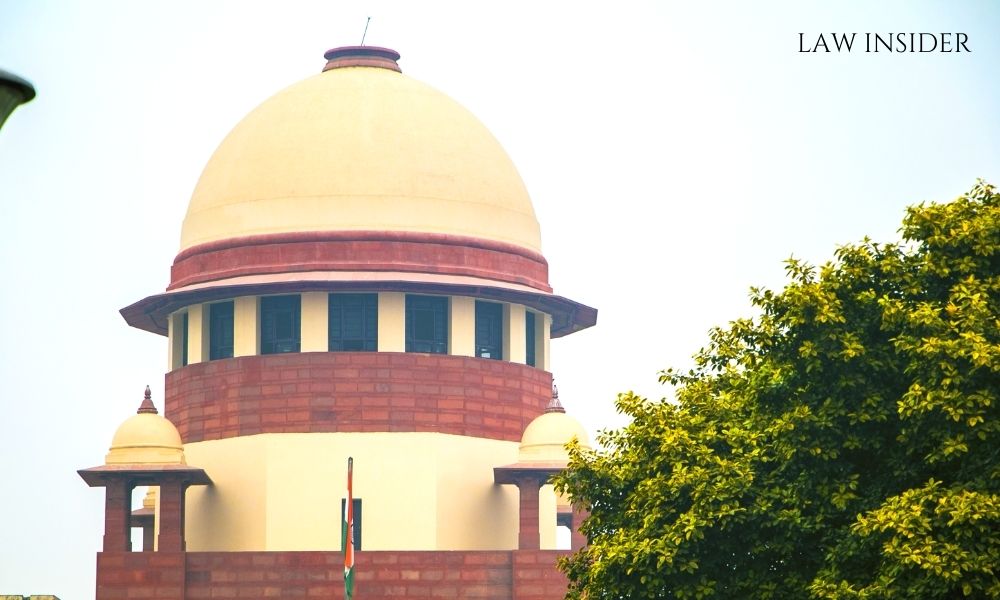LI Network
Published on: 26 September 2023 at 17:00 IST
The Supreme Court has clarified the conditions under which confessions made to the police are admissible under Section 27 of the Evidence Act. According to the court, for such confessions to be considered admissible, two crucial conditions must be met: the individual must be accused of an offense, and they must be in police custody at the time the confession is made.
The court emphasized that both “being in the custody of a police officer” and “being accused of an offense” are essential prerequisites for rendering a confession made to the police admissible, as outlined in Section 27 of the Evidence Act.
Also Read: Evidentiary value of Judicial and Extra Judicial Confessions – Law Insider India
A three-judge bench, comprising Justices BR Gavai, JB Pardiwala, and Sanjay Kumar, was hearing an appeal related to a case from the Madhya Pradesh High Court.
The High Court had upheld the conviction of Omprakash Yadav, sentencing him to life imprisonment, and had handed the death penalty to Raja Yadav and Rajesh Yadav for their involvement in the kidnapping and murder of a 15-year-old boy.
Omprakash Yadav was convicted under Section 364A read with Section 120B of the Indian Penal Code (IPC), while Raja Yadav and Rajesh Yadav were found guilty under Section 302 IPC read with Section 120B and Section 364A read with Section 120B, respectively.
The Supreme Court examined the circumstances surrounding the confession made by Rajesh Yadav, noting that the police had recorded his statement without formally arresting him.
Consequently, at that point, he was not legally considered an “accused of an offense.” It was contested that confession on discovery of the deceased’s body was made.
The Court referred to Section 26 of the Indian Evidence Act, which stipulates that “no confession made by any person whilst he is in the custody of a police officer shall be proved against such person unless it is made in the immediate presence of a Magistrate.”
Furthermore, Section 27 of the same act, which acts as an exception to Section 26, states that “when any fact is deposed to as discovered in consequence of information received from a person accused of any offense, in the custody of a police officer, so much of such information, whether it amounts to a confession or not, as relates distinctly to the fact thereby discovered, may be proved.”
The Court cited the Bodhraj case, emphasizing the reliability of information disclosed by a prisoner in custody. It clarified that such information becomes inadmissible under Section 26 of the Evidence Act if it does not come from a person in “custody of a police officer.”
The Court also referenced the David Rozario case, reinforcing that information admissible under Section 27 of the Evidence Act becomes inadmissible if it does not come from a person in “custody of a police officer.”
In the Ashish Jain case, the Court highlighted that an involuntary confessional statement of the accused is not admissible under Article 20(3) of the Constitution of India. However, if such evidence leads to the recovery of material objects related to a crime, it may be considered evidentiary.
The Court underscored the crucial conditions of being “accused of any offense” and being in “police custody” to invoke Section 27 of the Evidence Act, as reaffirmed in the Boby case.
In the case under consideration, Rajesh Yadav could not be deemed to be in “police custody” until his formal arrest, as he was not mentioned as an “accused” in the FIR and was not “accused of any offense” until his arrest. Consequently, his confession made before being accused could not be admitted as evidence under Section 27 of the Evidence Act, even if it led to the discovery of relevant facts.
This ruling serves as a significant clarification of the conditions necessary for the admissibility of confessions made to the police under Section 27 of the Evidence Act.

